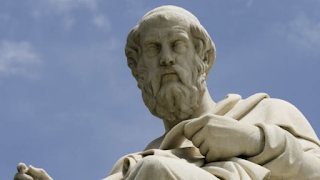2 Timothy 1 is an emotional chapter.
In vs 2 Paul calls Timothy “my beloved son”
In vs 3&4 Paul tells Timothy he’s been praying for him “night and day” and “greatly desires” to see him.
Also in vs 4 Paul recollects Timothy’s “tears”.
I’m not sure what Timothy was in tears about. Perhaps it was the thought of Paul’s upcoming martyrdom.
In 2 Tim 4:6 Paul said “…the time of my departure is at hand”.
Indeed Paul was martyred by Roman Emperor Nero in 66 a.d., soon after writing this letter.
Perhaps Timothy’s tears were sorrow mixed with fear of being imprisoned and martyred himself.
In any case, Paul reminds him in vs 6 to “stir up the gift of God which is in thee”.
This gift was probably a gift for teaching.
“Stir up” means to revive a fire.
Sometimes we need to agitate our embers in a spiritual sense.
Timothy’s tears and fears had nearly put out his passion for ministry.
In vs 7 Paul went on to encourage Timothy, “For God hath not given us the spirit of fear; but of power, and of love, and of a sound mind”
Then in vs 8 he is told not to be ashamed of the gospel, or of Paul himself.
It seems that some were ashamed of Paul.
In vs 15 Paul said “they which are in Asia be turned away from me; of whom are Phygellus and Hermogenes”.
It’s sad that right at the end of Paul’s ministry, when alone in prison and facing martyrdom, many abandoned him.
Paul was passing his ministry on to Timothy.
What a weight of responsibility. Especially when Timothy would be left to deal with false teachers after Paul had gone. Judaism, Gnosticism and Greek philosophy all threatened to swamp the Ephesian church.
This last week I was contemplating how Augustine’s doctrine of “original sin” has its roots in Gnostic “dualism”, the teaching that our flesh is evil and our soul is saved through “gnosis” or illumination.
I noticed how dualism grew out of Plato’s “theory of forms”, hence “original sin” is really rooted in Greek philosophy.
Colossians 2:8
Beware lest any man spoil you through philosophy and vain deceit, after the tradition of men, after the rudiments of the world, and not after Christ.
Paul’s epistles warn against philosophy, in fact any teaching that subtly subverts the gospel by shifting the focus away from godliness and towards something else.
A ship only needs to go off course by a few degrees to end up at an entirely different location.
Little wonder Paul told Timothy in vs 13&14 to “hold fast the form of sound words” and to “keep” “that good thing which was committed unto thee”.







No comments:
Post a Comment